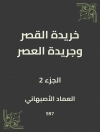The Collected Works of Virgil encapsulates the grandeur of Latin literature through its masterful verses, resonating with themes of duty, fate, and the human experience. Comprising the renowned epics 'The Aeneid, ’ 'The Georgics, ’ and the shorter pieces like the 'Eclogues, ’ this compilation showcases Virgil’s intricate poetic style, characterized by a blend of lush imagery, profound philosophical insights, and nationalistic fervor. Set against the backdrop of the turbulent Roman Republic transitioning into the Empire, Virgil’s work reflects both the historical context of his time and the rich tapestry of myth and allegory that defines the literary heritage of antiquity. Virgil, born Publius Vergilius Maro in 70 BCE, emerged from a pastoral background in the Roman province of Mantua. His extensive education in rhetoric and philosophy, coupled with the patronage of Augustus Caesar, allowed him to distill the complexities of Roman society into accessible poetry. Influenced by earlier poets such as Homer, Virgil aimed to forge a lasting national identity through literature, artfully intertwining his personal experiences with broader themes of love, loss, and perseverance. Readers will find in The Collected Works of Virgil a profound exploration of the human condition, woven through an enchanting narrative that transcends time and culture. This anthology not only enriches one’s understanding of classical literature but serves as an essential testament to the enduring legacy of a master poet. Whether you are a scholar or a casual reader, this collection is a pivotal addition to any literary library.
O autorze
Publius Vergilius Maro, more commonly known as Virgil (70 BCE – 19 BCE), stands among the most eminent figures in the pantheon of Western literature. Born in the pastoral landscapes near Mantua, in what is now northern Italy, his literary craft harmoniously weaves together the Hellenic traditions with the emerging Roman spirit. Virgil’s early pastoral poems, collected as the 'Eclogues, ’ reveal his mastery in depicting rustic life and its idealized simplicity. His subsequent work, the 'Georgics, ’ elevates agricultural toil to philosophical heights and is marked by an intricate blend of technical detail and poetic allegory. However, Virgil’s magnum opus, the 'Aeneid, ’ remains his unparalleled contribution to world literature. This epic poem traces the journey of Aeneas, a Trojan destined to found Rome, intertwining mythic history with the Augustan political narrative and establishing an enduring Roman identity. Virgil’s works, epitomized in 'The Collected Works of Virgil, ’ exhibit an exquisite command of language, a deep appreciation for mythology, and an influential commitment to national epic poetry. His style harmoniously blends Homeric influence with Roman national pride, thereby generating an enduring legacy which profoundly shaped Latin literature and Western literary tradition.












